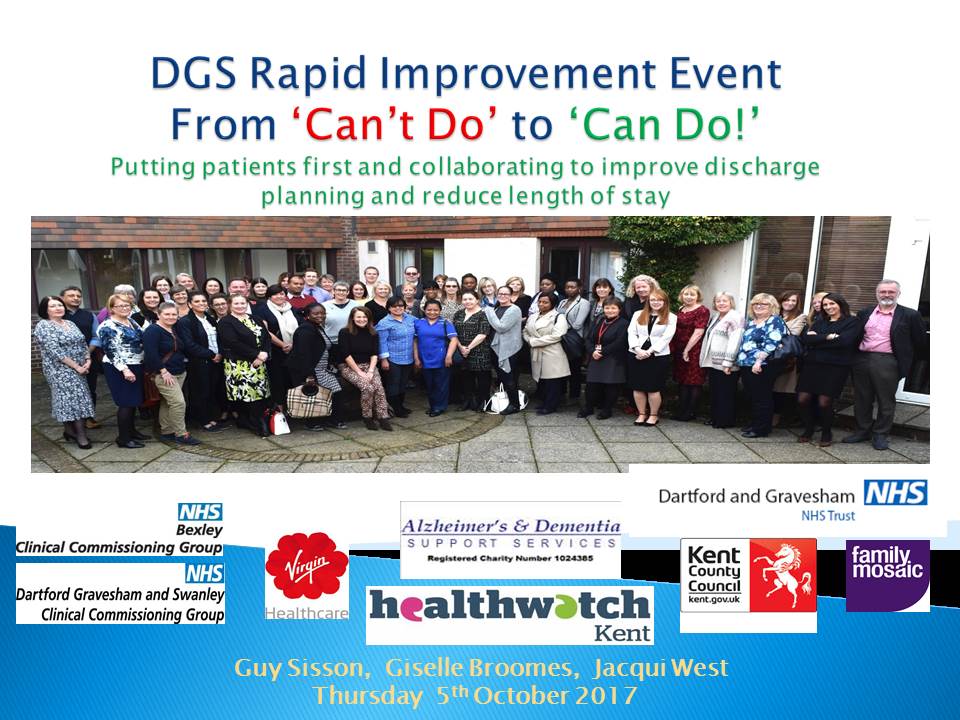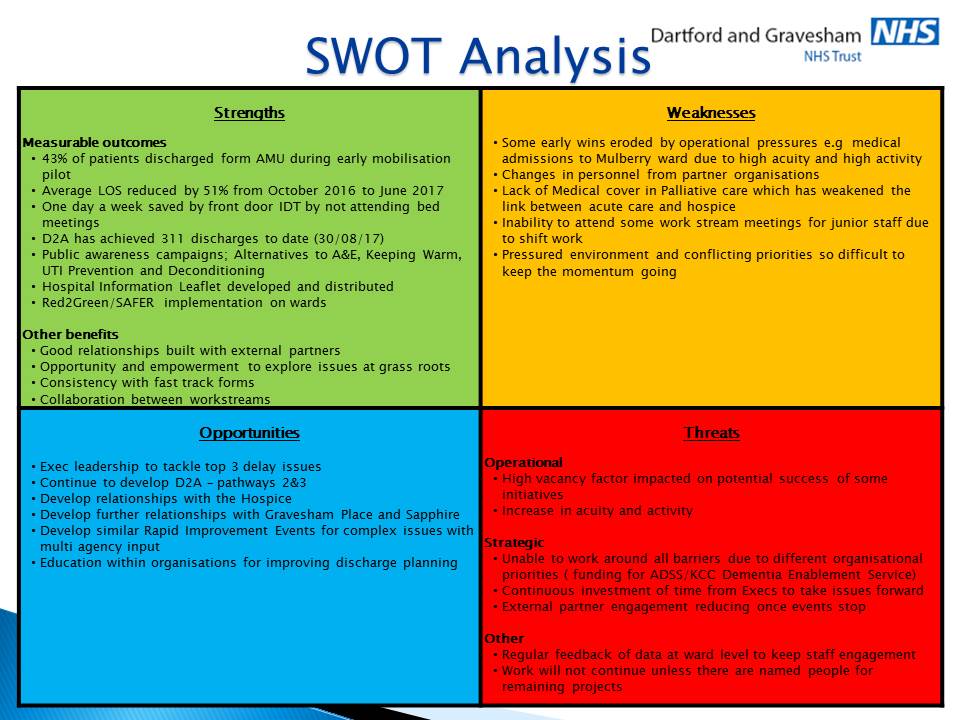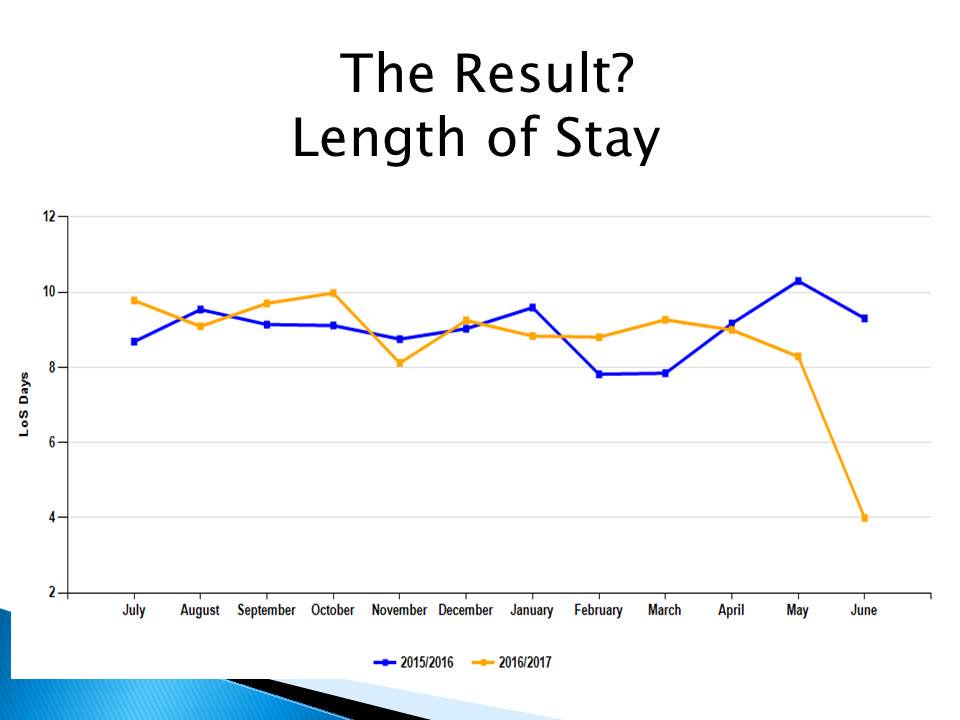 Aim To optimise discharge management across the system and reduce delay.
Aim To optimise discharge management across the system and reduce delay.Objective To reduce high bed occupancy and the number of medically fit for discharge patients in hospital.
Methodology Dartford and Gravesham NHS Trust (DGT) organised a 4 day Rapid Improvement Event (RIE), with follow up review dates at 30, 60, 90 and 120 days, to optimise discharge management throughout the system and reduce delays through collaborative working.
Support from NHSI, NHSE and ECIP was invaluable!
The advantages of this approach are:
• Participants fully engaged in the process and feel empowered to make changes in their own areas of work
• Greater ‘buy-in’ achieved, as actions and resolutions are developed and agreed by the stakeholders
• Real change in real time, at pace
• Mutual accountability and empathy
• Walking the journey together - joint learning • Improved relationships
• Ensuring safe, superior care and experience for our patients
 Staff from Primary Care, Social Services, Voluntary Services, Healthwatch (patient’s voice) and Community Care attended the event and worked together.
Staff from Primary Care, Social Services, Voluntary Services, Healthwatch (patient’s voice) and Community Care attended the event and worked together.Day 1 & 2: Introduction, Methodology, Process Mapping, Waste Walks and 30 day Actions Workstreams developed: Workstream 1 – Optimise discharges from ED Workstream 2 – In hospital Services Workstream 3 – Interface Workstream 4 – Information/communication Day 3 & 4: Driver Diagrams, Measurement and 60/90 Day Actions
A matrix of improvement methodologies was used as well as, regular workstream huddles, weekly sprint meetings, Kanban Boards to report progress and ASANA Programme to manage the project.
Key successes:
Workstream 1
• Acute Medical Unit (AMU) pilot
- 43% of patients discharged direct from AMU
- Follow-up therapy sessions prevented deconditioning of patients whilst on ward & facilitated earlier discharge
- Pilot became business as usual from April 2017
• Dementia Pathway Development
– joint working with Social Services.
Workstream 2
• Red2Green launch in DGT July 17
- Training programme established; over 150 staff trained so far
- R2G/SAFER bundle implemented on 19 wards
- Top 3 delay reasons identified
Workstream 3
• Discharge to Assess - sharing responsibility for discharge planning for patients across DGS
- Proactive facilitation of early discharges from acute beds
- Avoiding admissions and improving patient flow through ED
- 342 discharges since Mar 17
- 92.3% compliance for 2hr assessment o Average LOS 3.9 days
Workstream 4
• Social media campaign on alternatives to A&E/ED
- ED Video shared on Social Media – viewed over 200,000 times and watched by 35,200 people
- Shared with local schools and Kent County Council, shown in GP waiting rooms in DGS and Bexley CCGs
• Hospital Information for Patients Leaflet produced
• 4 questions poster promoting the message that patients should know the answer to, placed above every bed in DVH, on drug trolleys, tea trolleys, ward and toilet doors
• Keep Moving Campaign
• UTI Leaflet produced Outcome
• Reduction in average LOS from 9 days in 15/16 to 4 days in 16/17
• Nominated for 2 HSJ Awards 2017: 1. Staff Engagement - “Putting our patients first and organisational boundaries second” 2. Improved Partnerships between Health and Local Government – “Collaboration to improve discharge planning and reduce length of stay”
Conclusion Brainstorming leads to putting patients first and organisational boundaries second.

